

Language, Experience, and Development (LEAD) Lab
People
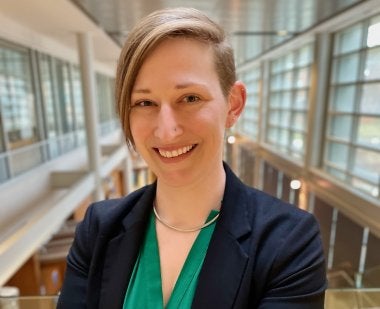
Dr. Rachel Romeo (she/her/hers) is an Assistant Professor in department of Human Development and Quantitative Methodology within the College of Education at the University of Maryland College Park and the Director of the LEAD lab. She is also faculty in the interdisciplinary program in Neuroscience and Cognitive Science, holds a courtesy appointment in the department of Hearing and Speech Sciences, and is a member of the Language Science Center, the Field Committee in Developmental Science, and the Brain Behavior Institute. Dr. Romeo is interested in how children's early experiences influence their brain and cognitive development, and how we can leverage those findings to inform education, clinical practice, and social policy. Dr. Romeo received her BA in Psychology and Linguistics from the University of Pennsylvania in 2011, and then received a Fulbright Fellowship at University College London where she completed a MSc in Language Sciences. She earned her PhD in 2018 in the joint Harvard/MIT Program in Speech and Hearing Bioscience and Technology, during which she also completed clinical training in Speech Language Pathology at the MGH Institute of Health Professions. Dr. Romeo holds the Certificate of Clinical Competence in Speech Language Pathology from the American Speech Language Hearing Association, and is licensed to practice in Maryland. She also completed postdoctoral training in neurodevelopmental disorders at Boston Children's Hospital, Harvard University, and Massachusetts Institute of Technology before coming to Maryland. Outside of the lab, Rachel enjoys spending time with her husband and daughter, attending weekly parkruns, binging crummy TV, and trying new foods (but definitely not cooking them). Curriculum Vitae Email
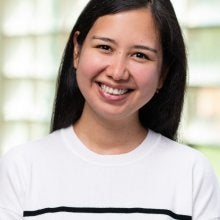
Gavkhar Abdurokhmonova (she/her/hers) is a fourth year doctoral candidate in Human Development and Quantitative Methodology at the University of Maryland, College Park. She received her combined Bachelor’s and Master’s in Psychology from Lomonosov Moscow State University and her Master’s in Mental Health Counseling from Long Island University. Before coming to UMD, she worked as a project coordinator of an NIH grant with Dr. Beatrice Beebe running mother-infant interaction visits at New York State Psychiatric Institute. Gavkhar also worked as a research assistant with Dr. Kimberly Noble (NEED lab) coding mother-child interaction videos for the Baby’s First Years study and with Dr. Kathy Hirsh-Pasek (Temple Infant & Child lab) assisting with various projects on playful learning. Under the mentorship of Dr. Rachel Romeo at the LEAD lab, Gavkhar is interested in examining how early language experiences, and the quality of early caregiver-child interactions specifically, shape children’s neurocognitive skills essential for their academic success. She hopes to use these findings to inform interventions on promoting optimal learning for children from diverse SES backgrounds. In her free time, Gavkhar enjoys going on long walks, reading and chatting with her family in NYC and overseas. She can be reached at ga2541@umd.edu.
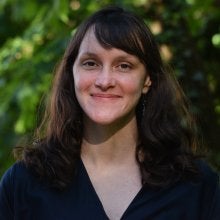
Ellen Roche (she/her/hers; they/them/theirs) is a fourth year doctoral candidate in the Neuroscience and Cognitive Science program at UMD College Park. She holds bachelors degrees in English and Music from University of Maryland and a Master’s in Education from Harvard University. Prior to joining the LEAD lab, Ellen worked for two years in the Early Learning Project lab with Dr. Rachel Barr at Georgetown University. At Georgetown, she primarily focused on a study of how infants built sensitive relationships with their socially-distant grandparents via Zoom during COVID-19. Ellen started her career as an educator, teaching Pre-K as well as middle and high school English/Language Arts, and most recently served as Executive Director of Trust for Learning, a philanthropic partnership working to support ideal learning environments for all children in publicly-funded programs, prenatal - eight. She also has eight years of experience as a researcher, writer, and strategist focused on progressive campaigns and candidates. Ellen hopes to advance antiracism and inclusion in scientific research, and is exploring the diverse ways children and families use language to support emotional development and regulation in the first few years of life. In her spare time, you might catch her singing, birding, or writing a sonnet. She can be reached at rochee@umd.edu.
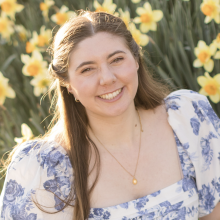
Ellie Taylor-Robinette (she/her/hers) is a second year doctoral student in the Human Development program at the University of Maryland and the LEAD Lab's former inaugural Lab Manager & Community Partnerships Specialist. She is broadly interested in exploring how early contexts, experiences, and relationships impact infant and toddler neural and cognitive development, future wellness, and resilience. Ellie graduated from Johns Hopkins University with a Bachelor of Arts in both Cognitive Science and Writing Seminars and a minor in Psychology and from Georgetown University with a Masters in Educational Transformation with a concentration in Advocacy & Policy. Ellie is deeply committed to community partnership and science communications efforts and seeks to increase the accessibility of involvement in and engagement with scientific research. She aims to pursue a career at the intersection of research and advocacy after pursuing further training at the graduate level. Outside of the lab, Ellie loves spending time with her rescue beabull, becoming a regular at local restaurants and coffee shops, and enjoying a healthy balance of time in the great outdoors and the great indoors. She can be reached at ektaylor@umd.edu.
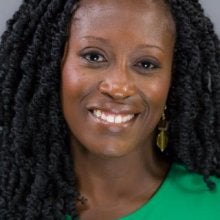
Eliza A. Thompson (she/her/hers) is an Assistant Clinical Professor in the Department of Hearing and Speech Sciences and third year doctoral student in the Department of Teaching, Learning, Policy, & Leadership jointly advised by Dr. Shenika Hankerson. She received her B.S. in Speech & Hearing Sciences from The George Washington University, her M.S. in Communication Sciences and Disorders from Howard University and an Ed.S from The George Washington University. Eliza also obtained an Advanced Certificate in Bilingual/Bicultural Education from Teacher's College, Columbia University. She has had a long standing interest in the processes of communication with a focus on child language development and emergent literacy intervention. As a clinician and clinical supervisor, Eliza has worked in a variety of settings including public schools, private practice and hospitals. She has also served as a clinical supervisor and therapist overseas, specifically, Ghana, Haiti and Kenya. Eliza has previously worked as a speech-language pathologist for the Montgomery County Infants & Toddlers Program as well as an adjunct faculty member and clinical educator at other Washington, DC area universities.
Eliza teaches Clinical Practicum, Principles and Methods in Speech-language Pathology, and Speech and Language Development in Children. Her specific clinical interests include bilingual language development, communication in cultural and linguistically populations, and language/literacy intervention.
Eliza is also founder and director of the department's premiere study abroad program, HESP-GPS. Global Perspective in Service-Learning (GPS) is a clinical training program for HESP students who seek a greater understanding of communication sciences and disorders in an international context. She can be reached at ethomps2@umd.edu.

Alicia Mortimer (she/her/hers) is the LEAD Lab's second Lab Manager. She is particularly interested in working collaboratively with families and educators to understand how different early experiences can impact neural and cognitive development, as well as the wellbeing of caregivers. Alicia completed her bachelor's in Psychology at the University of Bath in the UK. As part of her undergraduate degree, she worked at the Oxford University BabyLab, where she used functional near-infrared spectroscopy (fNIRS) to track the development of executive functions from infancy, across toddlerhood, and into the preschool years. Alicia then worked on an early intervention which aims to better support preschool-aged children from lower socioeconomic backgrounds, providing them with a firmer grounding in executive function and early educational (e.g., maths) skills. Alicia is very excited to further research how cognitive neuroscience can better support educational equity. Outside of the lab, she loves playing netball, reading, going to music gigs, and talking to her family back in London. She can be reached at aliciam@umd.edu
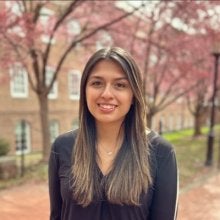
Alexus Ramirez (she/her/hers) is a postdoctoral research fellow under Dr. Rachel Romeo’s mentorship at the University of Maryland, College Park (UMD), funded by an NICHD NIH Diversity Supplement Award. She received her bachelor’s in psychology at the University of California, Merced, and earned her M.A. and Ph.D. from the University of Delaware (UD). Broadly, Alexus is interested in researching how variation in children’s early language experiences relates to developmental outcomes. During her doctoral work at UD, she examined parents’ beliefs about using infant-directed speech, grandparent-grandchild interactions over video chat, and how discussing specific topics, such as math, animals, or colors, during toddlerhood relate to children’s school readiness with Dr. Roberta Golinkoff (Child’s Play Lab). At UMD, Alexus will investigate how children’s home environments and parents’ beliefs about language learning relate to how parents talk with children, and in turn, children’s development of language, executive function, and social cognition in monolingual and bilingual families. At leisure, she loves hiking, reading, and playing soccer. She can be reached at alexusgr@umd.edu.
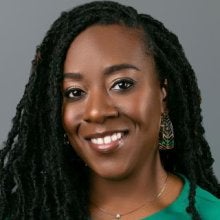
Eusabia Mont is an Associate Clinical Professor in the Department of Hearing and Speech Sciences at the University of Maryland, College Park. She is the director of the Cultural-Linguistic Diversity Emphasis Program for the MA in Speech and Language Pathology, and she leads the Mentorship Network. Her specific clinical interests include communication across the lifespan, emphasizing language development in children and dementia-related communication disorders. She is also interested in infusing diverse perspectives into course design and culturally responsive service delivery to reduce health disparities. Ms. Mont consults with the LEAD lab on the PLANES study (and others) on the ethical and appropriate assessment and analysis of language development in children from racially, ethnically, and socioeconomically diverse backgrounds, as well as culturally sensitive dissemination of findings to avoid biased and discriminatory findings for children from minoritized communities.
We have an amazing team of Undergraduate Research Assistants at the LEAD Lab. Read about each of them more below!
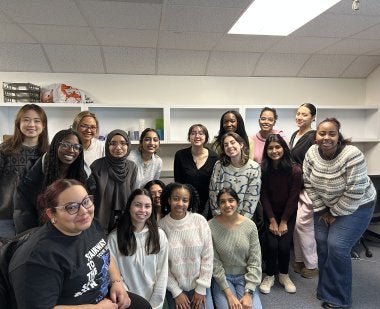
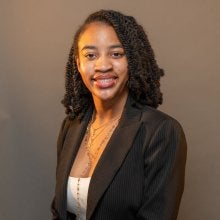
Amora Altmon (she/her/hers) is a junior Neuroscience major at University of Maryland. In the future, she plans to pursue a career in medicine. Her research interests include language development, with a particular emphasis on children raised in Black households. In Amora’s free time, she enjoys listening to music, reading, crocheting, and playing Roblox with her younger brother.

Amber Aviles-Rojas (she/her) is a freshman at the University of Maryland, majoring in Neuroscience. Her research interests lie in language and cognitive development, with a particular focus on how different contexts and experiences, especially in multilingual households, shape language development. She hopes to observe and analyze language acquisition in real time with the lab. Outside the Lab, she enjoys baking, reading, crafting, and watching movies!

Aakanksha Bhuvanapalli (she/her) is a junior pursuing a double major in Biochemistry and Neuroscience. As a first-generation American of Indian descent, she developed a keen interest in language development, particularly within multilingual families—a passion inspired by her experiences growing up in a multilingual home. She is also deeply interested in the biochemistry of the brain, specifically in its connection to learning processes. Beyond academics, Aakanksha is an avid reader, a crochet enthusiast, and an outdoor adventurer who loves exploring new countries and skiing. Looking ahead, she aspires to a career in medical research, where she can blend her academic passions with her commitment to advancing scientific understanding and improving lives.

Chloe Cartwright (she/her/hers) is a junior Psychology major and in the future she plans to pursue a career in Psychiatry. Her research interests in the lab are the way in which particular adverse experiences can affect cognition, development, and future outcomes in children. Outside of the lab, she can be found running, reading, cooking vegan food, attending concerts, and crafting the perfect latte as a barista.
Antonia DeMaria (she/her) is a senior Psychology major and a Human Development minor at the University of Maryland. Her research interests in the lab is cognitive development of children. Outside of the lab she prioritized mental health and can be found reading, exercising, or journaling.
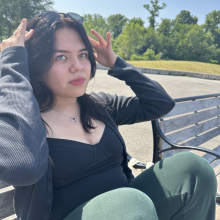
Merari Flores (she/her) is a Social Data Science major with a track in Sociology at the University of Maryland. She is hoping to pursue a career in research. Within the lab she is interested in witnessing and understanding more the sociolinguistic approach matched with being able to interact with children, and observe their process of language. Outside of the lab she enjoys cafe hopping and music!

Hannah Huang (she/her) is a sophomore Psychology and Family Health double major at the University of Maryland. She is passionate about working with young children and doing research that will make a positive impact on children’s lives. She is interested in how early childhood experiences, particularly parenting styles, impact learning and socio-emotional development. Outside of the lab, she likes to do yoga, ballet, listen to Indie pop, and is trying to get into cooking.

Matt Brown (he/they) is a junior psychology and sociology double major with a passion for research, understanding society, and helping others. He is specifically interested in researching the social and cognitive development of adolescence and better understanding how gender roles influence development. The LEAD Lab has given him a new perspective of how this research is conducted, especially within the fields of linguistics, human development, and education. This opportunity has increased Matt’s love of research, as he looks forward to pursuing a Ph.D. in social psychology after earning his B.A. Outside of academics and the LEAD Lab, Matt loves attending concerts, arts and crafts, exploring nature, and going on thrift store adventures.

Deb Nwobi (she/her/hers) is a junior majoring in cellular biology and molecular genetics and is interested in minoring in the Spanish language, culture, and professional contexts. Deb is a second-generation college student of Nigerian descent, and in the future, she plans to pursue pediatrics. Within the lab, Deb is interested in understanding how parental influence can affect children’s language development. Deb loves to learn about different languages and is passionate about becoming multilingual. On campus, she loves playing volleyball intramurals and has an interest in dance, music, cooking, and baking, In her free time, Deb loves to nap but if she’s up you may catch her watching some drama in another language.

Vanea Ogedengbe (she/her) is a sophomore psychology major at the University of Maryland on a pre-med track. She is particularly interested in learning about how socioeconomic and social status affect the cognitive and behavioral development, mental health, and quality of life for children. In the future, Vanea plans to pursue a career in pediatric psychiatry with the hope of being able to open a private practice that offers mental health care to children in underprivileged areas. Outside of the lab, Vanea enjoys coloring, taking walks, playing games on her iPad, and socializing with her friends!

Molly Parker (she/her/hers) is a sophomore Neuroscience major on a pre-PA track. She is passionate about how early experiences shape developing brains and hopes to work in pediatric neurology in the future. In the lab, she is interested in how early language experiences predict neural structure for literacy and mental health. Outside of the lab, she enjoys exercising, trying new restaurants with friends, and religiously playing the New York Times games!
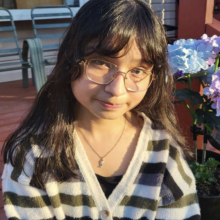
Paola Rojas (she/her/hers) is a junior neuroscience major and human development and general business double minor at the University of Maryland, College Park. As a first-generation college student of Bolivian descent, she has always been enthralled by the minds of young children and exploring how adverse environments can alter the development of areas key to certain functions–notably, language development. Following her fascination for almost seven years, Paola has been thoroughly involved with the Montgomery County educational system. From volunteering as a teacher assistant at Title I elementary schools to facilitating French conversations at a French immersion school, her passion for working with children has been unwavering. Now at the LEAD Lab, she hopes to get her feet wet in the fruitful research process, while also addressing the opportunity gap in education. Outside of the lab, Paola enjoys baking, doing arts & crafts, playing badminton, trying new boba flavors, and playing Nintendo games.
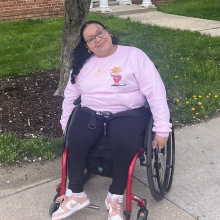
Angie Sandoval (she/her/hers) is a senior majoring in Hearing & Speech Sciences, minoring in Human Development. Her research interests include learning about bilingualism and how bilingualism has an effect on language development in children as she is of Salvadoran and Guatemalan descent. Outside of the lab, she enjoys listening to music and reading.
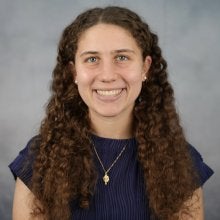
Malia Schmelzer (she/her) is majoring in Spanish as well as philosophy, politics, and economics (PPE). She is also minoring in human development. She is interested in how language development intersects with SES, as well as decisions to raise kids bilingual since her family is Guatemalan. In her free time, she enjoys lifting, running, playing board games, and reading.
Catherine Smith (she/her) is a sophomore at the University of Maryland pursuing a pre-major in Biocomputational Engineering. She is passionate about developmental neuroscience and the application of computational methods and data analysis in research. She also enjoys working with children and hopes to pursue research that can positively impact their lives. Outside of the lab, Catherine loves going on walks, working on her crochet business, and playing video games with friends!
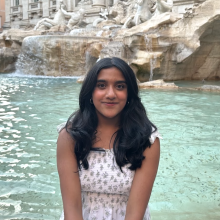
Rihalya Sivakumar (she/her/hers) is a sophomore Neuroscience major at the LEAD Lab on the premed track. She is generally interested in studying neurological and cognitive development, and in particular is excited to analyze these topics in relation to children at the lab. Rihalya hopes to pursue a career in surgery with a focus in either neuroscience, pediatrics, or fetal medicine. In her free time, she enjoys reading and writing, as well as binge watching early 2000s television shows.

Salma Srour (she/her/hers) is a sophomore Neuroscience major at the University of Maryland. In the future, she hopes to pursue a career in medicine, particularly in Psychiatry in communities where such care is often inaccessible and stigmatized. She is deeply interested in understanding how socioeconomic and cultural factors inform early childhood experiences, and how they affect one’s development and mental health. Outside the LEAD Lab, Salma enjoys photography, trying new recipes, and going to thrift stores.

Carissa Wolff (she/her/hers) is a senior double major in Public Health Practice and Family Science, with a commitment to addressing health inequities and inequalities. Her academic interests lie in exploring how early life experiences, socioeconomic status, and social determinants of health impact social, emotional, and cognitive development across the lifespan, ultimately shaping later life experiences. Since beginning her work with children at 16 years old, she has developed a passion for understanding and fostering healthy development. She enjoys the challenge of both quantitative and qualitative research, believing in the importance of close partnerships between communities and researchers to ensure impactful and inclusive outcomes. Outside of her academic and research pursuits, she enjoys spending time with family and friends, going on walks, and watching movies. Her ultimate goal is to pursue a career at the intersection of research and public health, driving positive change through evidence-based initiatives and community-centered approaches.
VIP = "Very Important Pets"
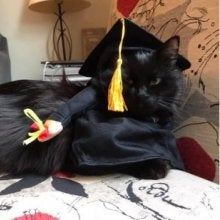
Shae Romeo came to the LEAD lab as a rescue in Dr. Romeo's first year of graduate school. She recently completed her doctorate in knocking items off desks with a certificate in sitting on keyboards. Once she even shut down an international zoom presentation by leaping straight into a computer monitor. She is currently learning how to fetch, but struggles with the "bring it back" part. She instantly loves everyone who has the potential to feed her and enjoys copious naps in inopportune places.

Maya Romeo was also adopted into the LEAD lab during Dr. Romeo's first year of graduate school. She had a difficult early life on the mean streets of Boston, but she is the picture of resilience to adversity. Maya is currently working on her masters' degree in squeezing into impossibly small spaces, and has developed a remarkable new method of transforming herself into an aqueous state to slide under furniture with only inches of space underneath. Maya makes you earn her love, but once you're in her inner circle, it is incredibly rewarding.

Bonita Taylor-Robinette is a rescue Beagle/English Bulldog mix. As a ten-year-old beabull, Bonita is entering her golden years, and she knows exactly what she likes: Whimzees brand dental chews, long naps, walks through the snow, and lots of snuggles. Long before she was rescued by her current family, Bonita was named after A Tribe Called Quest’s 1999 hit “Bonita Applebum,” so her parents joke that her full name is Bonita “Gordita” Rosalinda Applebum Taylor-Robinette. Bonita is honored to be considered a VIP researcher.

Oso Happy A. Terry is a rescue Labrador Retriever/American Staffordshire Terrier mix. He is learning a lot about the world still as a puppy, but he is very curious and eager to climb up the academic ladder. He’s probably the first dog you’ll meet with a middle name, but if you met him you’d understand exactly why “Happy” had to be included! His favorite thing to do is go to a drive though because he gets to observe new people and discover new smells. This VIP researcher takes his job seriously to motivate his human by snuggling up to her whenever she’s doing her work.
Rigatoni Ramirez was adopted at the beginning of Dr. Ramirez’s postdoc. He takes pleasure in laying on the warmth of keyboards, napping all day, and zooming all night. Observing his water fountain brings Rigatoni immense joy and is his preferred pastime. Although initially timid, Rigatoni will show his affection through cuddles and making biscuits.

Zeus Madanat was also adopted at the beginning of Dr. Ramirez’s postdoc. He is actively pursuing his passion as a parkour enthusiast. Zeus finds delight in climbing on shoulders, chasing his tail, playing hide-and-go-seek, and pouncing on springy toys. Zeus is a sociable lad who warmly welcomes everyone he meets with gentle rubs and joyful purring.

Hudson Mortimer is a Nova Scotia Duck Tolling Retriever who is back in Alicia’s hometown of London. Despite almost being 10 years old, Hudson still acts like a puppy and likes to be included in all of his family’s activities. His favourite thing in the world is going to the beach despite being scared of the water and an awful swimmer.

Max Sandoval is a lab-pit mix. he is 5 years old. his favorite food is bread, chicken, and spaghetti. his favorite things to do is run outside and take naps with my mom!

Benji Wolff is a 3-year-old beagle that my brother has recently rescued. In his free time, he loves eating pup cups from local coffee shops, chasing squirrels, and taking long naps on the couch!

Miki Srour is a very energetic, sassy queen who was adopted in 2018. She loves to play with her toy gorilla, sleeping in the most inconvenient places, and chasing squirrels. She goes wild at the sight of bread or croissants (much like her parents), and her soft fur makes for the best cuddles.

Charlie Sivakumar is a bichon frise. His interests include ripping up stuffed animals, watching movies, fighting with animals that are much larger than him, and begging everyone he meets for food.

Ellie Parker is a 2 year old rescue mix that we just adopted over winter break. She loves snuggles, taking up the entire bed at night, and squeaker toys!

Estrella Huang is a shepherd-husky mix. Her interests include being a gentle giant, sunbathing, and digging up all sorts of roots in the backyard. She lives in California where she misses her big sister, Hannah, very much.
Telise Arce-Reed (she/her), Undergraduate Research Assistant/Senior Research Assistant (2024-2025)
Ama Arhin (she/her), Undergraduate Research Assistant (2022-2023)
Mya Brown (she/her), Undergraduate Visiting BSOS SRI Student (Summer 2025)
Amy Carolus (she/her), Research Assistant/Research Affiliate (2020-2023)
Ananya Devadiga (she/her), Human Development Internship Student (2021-2022)
Julie Do (she/her), Research Affiliate (2025)
Mariah Egerton (she/her), Research Affiliate (2024-2025) & Interim Lab Manager (Summer 2024)
Lily Gates (she/her), Undergraduate Research Assistant (2025)
Alex Haralanova (she/they), Undergraduate Research Assistant/Senior Research Assistant (2022-2025)
Jun Ikeda (any pronouns), Undergraduate Research Assistant (2022-2023)
Christina Kim (she/her), Visiting PhD Student (Summer 2023)
Grace Kim (she/her), HGSE Masters Student (2021-2022)
Navleen Kaur (she/her), Undergraduate Research Assistant/Senior Research Assistant (2024-2025)
Klaudia Kulawska (she/her), Research Assistant/Research Affiliate (2020-2022)
S. Alexa McDorman (they/them), PhD Student (2022-2025)
Sarah Nam (she/her), Undergraduate Research Assistant (2025)
Nicole Ostria (she/her), Undergraduate Research Assistant (2023-2024)
Madeleine Pham (she/her), Undergraduate Research Assistant (Summer 2024)
Daniel Pyo (he/him), Human Development Internship Student (2021-2022)
Samara Rahman (she/her), Undergraduate Research Assistant (2025)
Ben Rickles (he/him), Research Affiliate (2022-2023)
Fatimaria Rosales-Lima (she/her), Undergraduate Research Assistant (2023-2024)
Amanda Rosenberg (she/her), Research Assistant/Research Affiliate (2020-2023)
Fatou Sall (she/her), Undergraduate Research Assistant/Senior Research Assistant (2023-2025)
Vanessa Schor Guerrero (she/her), Undergraduate Visiting BSOS SRI Student (Summer 2024)
Natalie Sharbin (she/her), Undergraduate Research Assistant (2022-2023)
Manaal Shariff (she/her), Undergraduate Research Assistant (2025)
Abria Simmons (she/her), Undergraduate Research Assistant/Senior Research Assistant/Hair Equity Specialist (2023-2025)
Casey Spelman (she/her), Visiting PhD Student (Summer 2023)

Dr. Victoria Alexander Terry (she/her/hers) was a fifth-year doctoral candidate in the Human Development program and the Neuroscience and Cognitive Sciences certification program at the University of Maryland. She was advised by Dr. Kelly Mix in the UMD Learning and Cognition Lab and co-advised by Dr. Rachel Romeo in the Language, Experience, and Development Lab.
Victoria came to UMD in Fall 2021 with a deep commitment to expanding access and opportunity in STEM education. A first-generation American of Caribbean descent, she often spoke about growing up watching peers doubt their potential to pursue STEM fields within higher education. These experiences inspired her dedication to increasing diversity within STEM and to building bridges between socioeconomic status and academic achievement.
Her research focused on the cognitive mechanisms involved in learning mathematics, including spatial reasoning and executive function. Victoria was especially interested in identifying creative, inclusive ways to strengthen the cognitive skills that support mathematical understanding and achievement. She also believed strongly in the value of the arts as a pathway for fostering mathematical learning. Central to her work was the conviction that understanding the neurological and cognitive processes underlying learning—particularly among diverse populations—is essential to better serving future generations.
Victoria was a fully engaged and deeply valued member of the UMD community. During her time in the College of Education, she participated extensively in research, teaching, and service, reflecting both her intellectual curiosity and her genuine dedication to helping others learn. She was a member of the Council on Racial Equity and Justice, where she worked to advance racial equity throughout the college. She also taught courses in educational psychology and human development and was beloved by her students and colleagues. She was a familiar and welcoming presence in the LEAD lab and the College of education, radiating enthusiasm and joy in all her interactions. Outside of academia, Victoria was a talented singer and songwriter who cherished creative expression, and she loved baking sweet treats and sharing time with friends.
Awarded her doctorate posthumously in 2026, Dr. Terry is remembered for her brilliance, her compassion, her creativity, and her unwavering commitment to equity in education. Her work, her mentorship, and her spirit continue to shape and inspire the community she cared for so deeply.